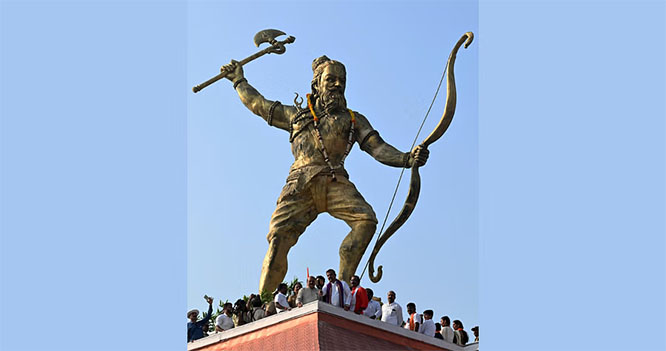London, Jun 13: A 28-year-old Indian-origin student in the UK has been racially attacked by a white man, shouting "Brexit, go back home" after the Briton made sexist remarks towards a hijab-clad woman, media reports said.
Rickesh Advani, a political science student at Cambridge University, confronted the man for his comments towards the woman, only to be hit with an outburst of racial abuse, Cambridge News reported.
Advani stood up to the man in a Cambridge hospital after a female patient bent over to put her bag down only to be told to "spread 'em" and to "get your t*** out."
But he was then heard saying "no not you, love" to a woman wearing a hijab.
The shocking footage shows Advani being told to "pipe down", before going on to make the comment 'Brexit, go home' and after that he walked out the surgery and reported the abuse to police, it said.
"I was absolutely disgusted by what I had heard and couldn't believe that in 2018 people can be so bigoted. At the very first opportunity I told him to politely stop and hoped that would be the end of it," Advani said.
"Any reasonable human in that situation would have accepted his wrong but he became unnecessarily aggressive to me," Advani, who also runs a charity for homeless people, said.
None of the other patients in the surgery stood by him when he confronted the racist and sexist comments and Advani says he is disappointed by how they reacted.
"I was very shocked that I was the only one that stood up and said 'no this is not right'. Even when I asked someone to call the police, everyone just sat their and I hoped people would stick up for something so wrong," he said.
"Investigations continue. No arrests have been made," a police spokesman was quoted as saying by the report.
The Cornford House Surgery has also apologised.
Simon Gridley, a surgery manager at Cornford House Surgery, wrote in a letter to him: "I would like to apologise for our handling of the racial abuse you received on that day. My colleague mentioned that you felt you were unfairly treated as you (were made to feel) that you were the guilty party, when you had, quite rightly, stood up for another member of the public.
"I know an apology is NOT the same as getting it right the first time, but again, I sincerely apologise."







Comments
Add new comment